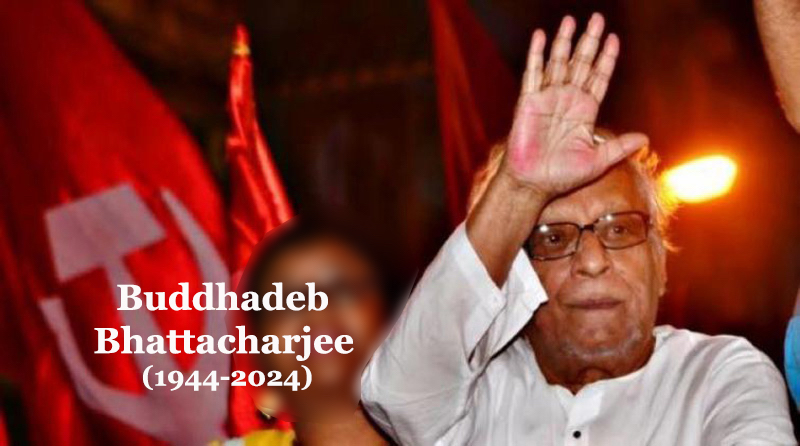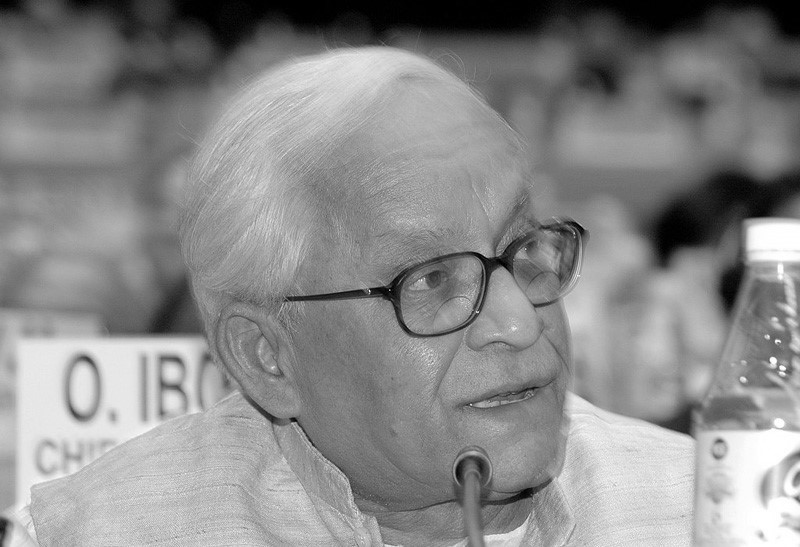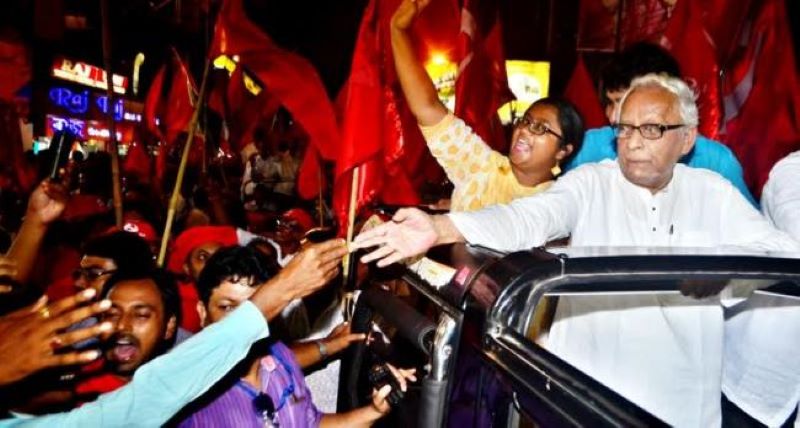
Buddhadeb Bhattacharjee: A 'capitalist communist', poet and face of Bengal's fractured industrialisation
Former West Bengal Chief Minister Buddhadeb Bhattacharjee, whose bold attempts at economic reforms in the decades-long rule of the communists in the state saw their ouster over farmers' protests, died on Thursday at age 80, ending one of the illustrious yet politically incomplete journeys of a reformist Marxist in India.
Global media had labelled him a "capitalist communist" for his attempts to reform, but Bhattacharjee's efforts came to a naught when the Left met their political Waterloo in Singur and Nandigram movements that finally ensured their ouster in 2011.
Bhattacharjee was compared to China's Deng Xiaoping, the paramount leader of the People's Republic of China (PRC) who rose to supreme power after Mao Zedong's death in 1976 and began integrating the Chinese economy with the Western economy with far-reaching market-economy reforms.
The CPI-M veteran, whose uncle (father's cousin) was revolutionary Bengali poet Sukanta Bhattacharya, was born in 1944 in a family in north Kolkata.
Bhattacharjee, a man known for his clean image, spartan living like a textbook communist and cultural affinity reflected through his love for cinema and literature, studied Bengali literature at the prestigious Presidency College, Kolkata (now Presidency University), and secured his B.A. degree in Bengali (Honors).
After finishing his college, Bhattacharjee joined politics holding the red flag of the Communist Party of India-Marxist (CPI-M).
He was appointed the state secretary of the Democratic Youth Federation, which was the youth wing of the CPI-M.
 Photo courtesy: Wikipedia
Photo courtesy: Wikipedia
Bhattacharjee had remained the MLA from the iconic Jadavpur constituency for 24 straight years until he was defeated by the former Chief Secretary of his own government, Manish Gupta (as a Trinamool Congress candidate).
He was also an MLA from Cossipore between 1977 and 1982.
After holding various portfolios in the Jyoti Basu government for years, he was chosen by his party to take over as the Chief Minister, when the communist stalwart and his mentor stepped down in late 2000.
Following a two-decade Communist rule since 1977, of which a considerable number of people were growing impatient for lack of jobs, poor work culture, declining education system and rise in political violence, Bhattacharjee emerged as a new hope for the Bengalis as a modern CPI-M leader.
In an interview in the initial days of his CM term he had said using cricketing analogy, "I am trying to play well but have to score a lot of runs."
Literally it means, Bhattacharjee felt he had a long way to go and excel as the CM of the state.
Putting an end to the surge of Congress and later its offshoot Trinamool Congress in West Bengal in late 1990s and early 2000, Bhattacharjee-led Left Front stormed to power in 2006 for the seventh consecutive term with a thumping 235 of 294 seats.
Soon after emerging as a popular leader, Bhattacharjee, whose technique of work was termed as "Brand Buddha" in a section of media, struggled to find his way while launching an industrialisation drive in industry-parched West Bengal.
After developing the IT services across the state in the first tenure with "Do It Now" slogan, Bhattacharjee's plan to acquire lands in Singur and Nandigram backfired, catching his government off-guard by the massive protests by farmers, who were obviously backed by then opposition leader and Trinamool chief Mamata Banerjee.
Many claim the 2006 success had got into the head of Bhattacharjee, who had controversially said, "We've 235, they have 30 (We have 235 seats while the Opposition has only 30 seats)."
Facing massive backlash in Singur and police firing in Nandigram killing at least 14 people, the Left Front government, which had already lost its chief strategist Anil Biswas by then, broke down under the pressure.
Though Bhattacharjee had met then Governor Gopal Krishna Gandhi and the opposition leader at Raj Bhavan for a way out, the deadlock was far from any resolution with Bhattacharjee's adversery Banerjee taking the reign of the farmers' protest.
 Photo courtesy: IBNS
Photo courtesy: IBNS
The face of liberal economy in the state, Bhattacharjee soon crumbled with industrialist Ratan Tata bidding goodbye to the state for Narendra Modi's Gujarat for the Nano car project. The protests had by then created a hole into the Left's votebank.
After he was voted out of power in 2011, Bhattacharjee stayed away from active politics for a year but soon returned to the political battlefield, leading the Left in the 2016 assembly elections, though unsuccessfully.
For the last few years, Bhattacharjee was out of politics, fighting his old age illnesses. He was confined to his Palm Avenue home with his wife Meera and son Suchetan (a trans-man).
A strong critic of the successive central governments till the end, Buddhadeb Bhattacharjee refused Padma Bhushan, the third-highest civilian award in India, in 2022 when it was announced under the Narendra Modi regime.
Though his industrialisation drive had backfired, Bhattacharjee, who was known to be an intellectual, was instrumental in starting the Kolkata International Film Festival in 1995, giving the state a taste of world cinema.
Buddhadeb Bhattacharjee was a poet and playwright who also translated the works of great Colombian-born novelist Gabriel Garcia Marquez in Bengali. He also translated Russian poet, author and playwright Vladimir Mayakovsky's works into Bengali.
Support Our Journalism
We cannot do without you.. your contribution supports unbiased journalism
IBNS is not driven by any ism- not wokeism, not racism, not skewed secularism, not hyper right-wing or left liberal ideals, nor by any hardline religious beliefs or hyper nationalism. We want to serve you good old objective news, as they are. We do not judge or preach. We let people decide for themselves. We only try to present factual and well-sourced news.







